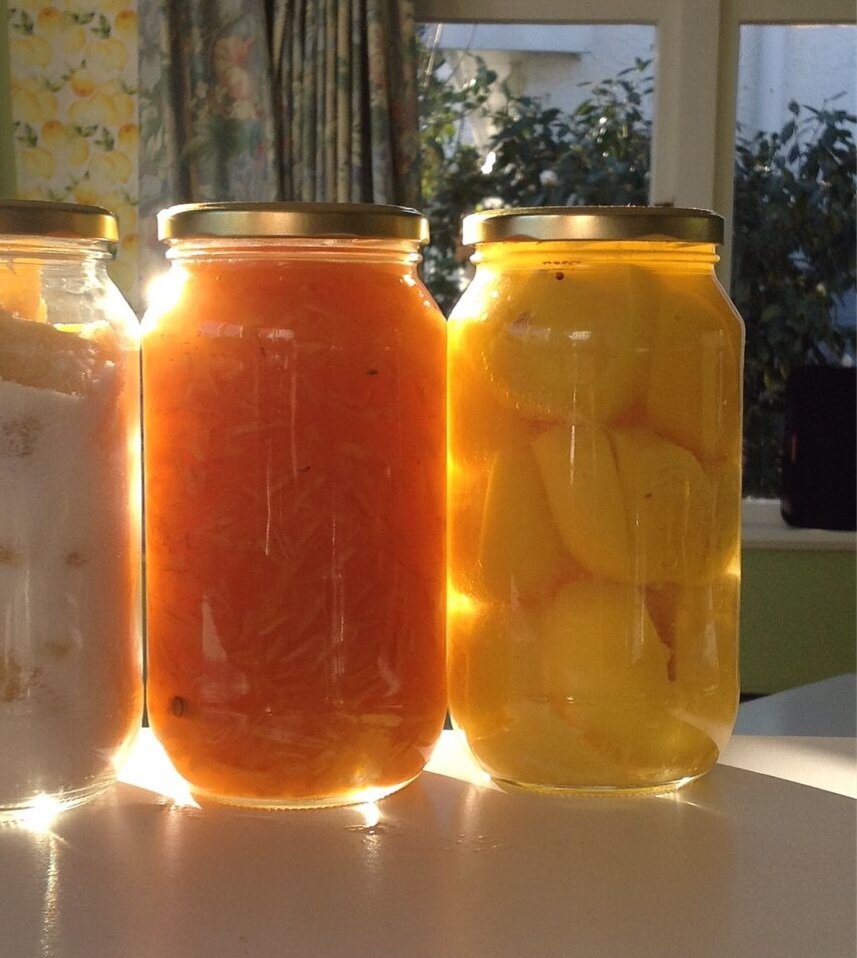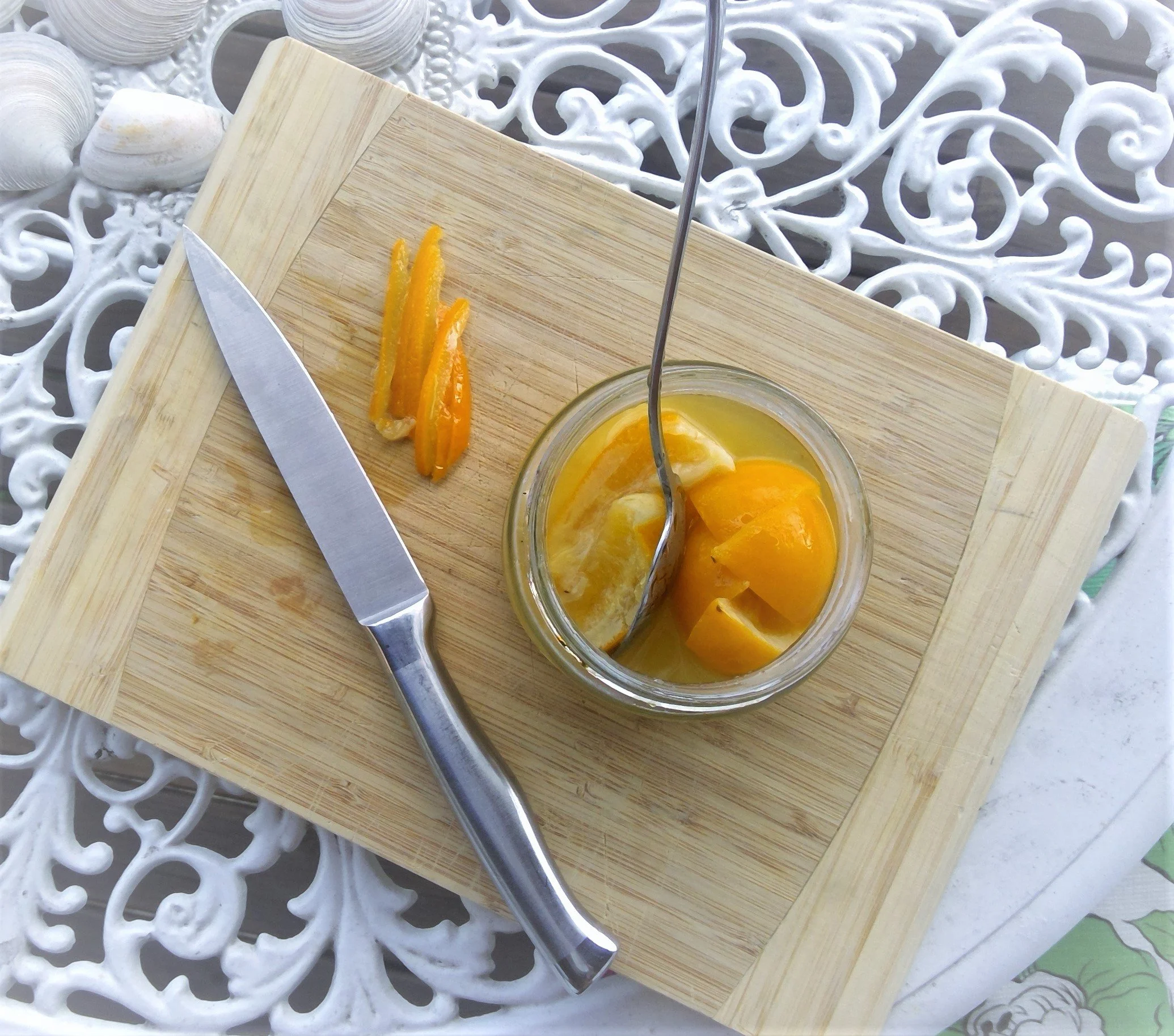Probiotic Preserved Lemons
When life gives you lemons, preserve them! Preserved lemons rank among the easiest and most delectable probiotic foods you can make at home. Consider this: which dish wouldn't benefit from a bright kick of lemon and salt? Read on to discover how to create and savor this fermented treat, enhance digestion, reduce inflammation, and elevate the flavor of everything you eat.
First, let’s talk about the health benefits, because, well, that’s my jam! The therapeutic properties of preserved lemons are due to 2 main factors:
The beneficial bacteria creating during the fermentation process
The healing compounds found in lemon peels.
First, the bacteria: fermenting lemons produces beneficial lactic acid bacteria. The elevated salt and acidity of lemons does slow down the proliferation of lactic acid bacteria, so the amount found in preserved lemons is not as high as in, say, sauerkraut. But a little goes a long way; small amounts of Lactobacillus strains have been shown to enhance digestion, improve mental health and reduce cytokine levels associated Long-COVID, chronic Lyme and other conditions associated with immune function imbalances.
Probiotic foods enhance the gut microbiome, which is also important for a healthy vagus nerve which supports a healthy stress response, digestion and emotional resilience.
On to the lemon peels. Aside from a bit of lemon zest, nobody eats raw lemon peels with the pith, right? Well that’s a shame because they contain loads of powerful plant compounds and have numerous health benefits:
Healthy detoxification - The limonene and flavonoids in lemons support overall detoxification by slowing down phase 1 detoxification enzymes in liver, which minimizes damage to DNA from partially metabolized toxins.
Inflammation reduction - Limonene, hesperidin and rutin have antioxidant and anti-inflammatory properties. Inflammation contributes to poor skin health, gut issues, Long-COVID and cardiovascular disease, among others.
Good source of vitamin C: Important for immune health, skin health, wound repair and collagen production.
Improves digestion- Limonin (responsible for the bitter flavor in the pith) helps improve fat digestion and stimulates digestive secretions in the mouth and stomach. The fiber in lemon peels also aid digestion by feeding the good gut bacteria and promoting a feelings of fullness. The pectin in particular helps lower cholesterol and improve blood sugar levels as well.
Potential anti-cancer properties: Limonene and limonin have been studied for their potential to inhibit the growth of cancer cells.
If you are new to fermenting, check out my Fermentation Basics here before you get started.
Once you have a nice full jar in your fridge of these golden beauties, you will think of a million ways you can use them. I add preserved lemon to any dish that would benefit from a bright kick of lemon and salt. It’s wonderful in salads, soups, curries, you name it! It is wonderful in my Sprouted Buckwheat Tabbouleh and Cumin-Scented Lentil Stew recipes on the blog.
Probiotic Preserved Lemons
INGREDIENTS:
12 Lemons (medium sized, meyer lemon or other thin-rind lemon)
1/2 cup Sea Salt (or Himalayan - do not use salt with anti-caking agents)
DIRECTIONS:
Wash the rind of 9 medium lemons and set aside.
Do all the cutting and salting work over a bowl to catch the fallen salt and juice
Stand a lemon on its end and slice in half until you almost cut through, leaving about 1/4 inch of lemon. Then cut another slice so that the lemon is now quartered, but each quarter is attached at the bottom
Open up the first slice and tip 1 tsp in, then open the second and add another teaspoon. Squeeze the lemon closed again and place in the jar.
If your lemons are small enough, you can squeeze 3 lemons into the bottom layer of the jar, ending up with 3 layers of 3 lemons each. The lemons should just barely fit, this will encourage juices to come up and cover the lemons.
Continue slicing each lemon, filling each with 2 tsp salt and packing them into the jar. Pour the excess juice and salt from the bowl over the lemons. Cut the 3 remaining lemons in half, and squeeze the juice into the jar until the lemons are covered in juice, then take one of the juiced half rinds and put on top before screwing the lid on - this will help keep the salted lemons below the surface of the juice.
Put the jar in a sunny window sill for a couple weeks, opening the lid to let air out everyday. You should notice a few bubbles rising from the bottom when you do this. Add more lemon juice if needed to keep the lemons submerged.
NOTE: The lemons will ferment more quickly in warmer environments, and take longer in cool places. The lemons are done when the inner fruit easily peels away from the rind and the rind is very soft. When they are ready, store in the fridge for up to 2 months.
To serve, remove lemons by the quarter from the jar. Remove the fruit and discard, finely chop the peel. You can add it to soups and sauces, or top meals with it. A little goes a long way… enjoy!
Yours in health,
Camille Hoffman
Naturopath & Nutritionist
Ready to get to the root of your symptoms and heal for real?





